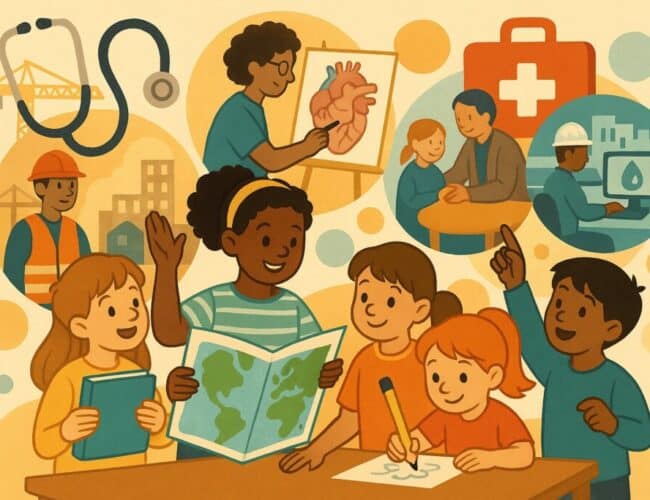
Ask a group of primary school children what they want to be, and you’ll likely hear a predictable and well-loved list of jobs: doctor, firefighter, teacher, astronaut. These ideas are born from the books they read and the adults they know. While these are all fine ambitions, this small selection of jobs represents just a sliver of what is actually out there. Encouraging children to look beyond the obvious is a crucial step in helping them find a future that genuinely fits who they are and what they love to do.
Beyond the Familiar Few
A child’s dream job is usually one they’ve seen. Professions like police officers or vets pop up in stories and on television, so they become the default options. This isn’t a bad thing, but it can accidentally narrow a child’s view of what’s possible, suggesting the world of work is much smaller than it is. The truth is that for every highly visible role, there are countless others operating just out of sight.
Connecting Passions to Professions
Take a child who loves to draw. They might think their only path is to become a gallery artist. But what if they knew about medical illustration, architectural visualisation, or user experience design? Or what about the one who is fascinated by maps? That interest could lead to a career as an urban planner, an environmental consultant, or a cartographer for a satellite company. When we introduce these less-trodden career paths, we’re showing them that their personal interests have value in many different fields.
Preventing Premature Decisions
Without this broader knowledge, it’s easy for a young person to write off certain subjects at school, believing they don’t lead anywhere interesting. The point isn’t to push them into a specific job, but to throw open the doors to what’s available. This empowers them to think more creatively about their own future and stops them from closing off avenues of exploration too early.
Appreciating the Invisible Workforce
A wider knowledge of jobs also gives children a much better grasp of how society actually works. So many vital roles are performed without any public recognition. Think of the logistics managers who make sure our supermarket shelves are full, or the water treatment specialists who keep our tap water safe. These are just some of the professions that keep our communities running smoothly, often without any fanfare.
Some Jobs are About People
Not every job is about what you know or what grades you get. Some are simply about looking after other people. Foster caring is a perfect example. This work calls for huge amounts of patience and empathy, giving children a safe place to live when they can’t be at home. By understanding what a foster carer does, children can see that a career can be built on kindness. They see how you can make a real, positive change in another person’s life. You can even explain how there are many avenues for financial help while taking on this role, such as fostering pay and the fostering tax allowance.
Seeing the Bigger Picture
As children discover this variety of jobs, they also gain a new respect for the work everyone does. They begin to grasp just how many different skills and people are needed to make a town run properly. It helps them build a fuller picture of the world and to value the part that each person plays in it.
Introducing children to the full range of professions is a real investment in their future. It gives them a bigger picture, which helps them make choices that are more informed and better suited to them when the time comes.